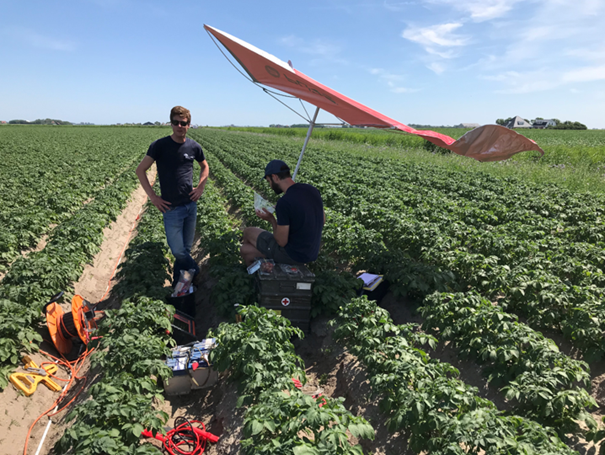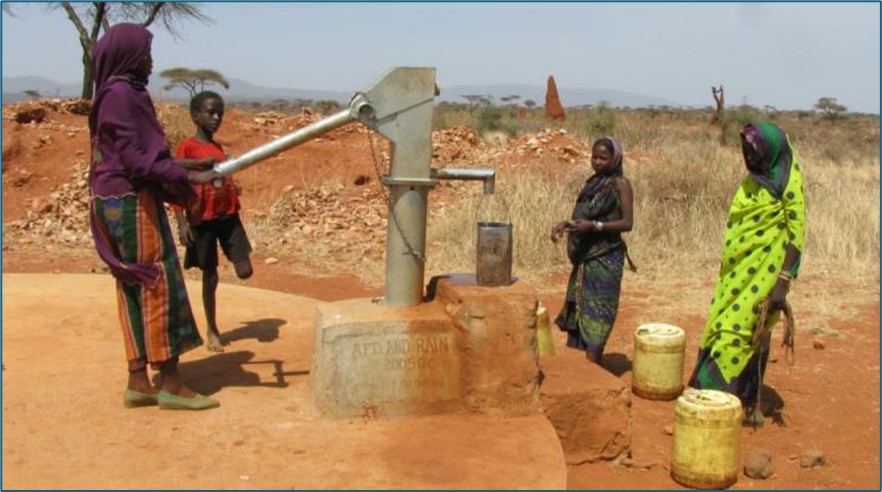Mapping a Sustainable Future for Africa’s Water Security
NABC Member Acacia Water analyses and advises on the availability, access, and storage of clean, healthy, and safe water to foster long-term water security and fruitful economic development in Africa.

In the realm of water economics, Acacia Water excels in sustainable solutions for clean, healthy, and safe water access for all. Tine te Winkel, Water Economist at Acacia Water, defines the water consultancy as a social enterprise, driven by a mission to ensure the sustainable use of water globally.
Founded two decades ago, Acacia Water initially aimed to revive international discourse on groundwater, recognising its alarming absence from public discussions. Today, the consultancy is at the forefront of crucial water themes, including water security, groundwater exploration, Water and Climate Smart Agriculture, and Water governance.
Africa holds a special place in Acacia’s endeavours, fuelled by its dynamic economic growth and diverse geohydrological challenges arising from varying geological conditions. “Water is a matter that touches everyone. So, we must team up with many different entities to enable access to safe and sustainable water sources – particularly in challenging environments,” explains Tine.
A tangible focus for Acacia in Africa lies in groundwater exploration, where they delve deep into geohydrological research to unveil the mysteries beneath the earth’s surface. “In Africa, where we have a high demand for safe drinking water above ground, we act very diligently before we start drilling boreholes,” underlines Tine and explains that expensive groundwater exploration projects often result in dry boreholes when no proper research and analysis of the hydrogeological conditions have been done beforehand. Therefore, the consultancy advocates for informed decisions based on thorough research, a principle currently in action in Ethiopia.
In collaboration with the Ethiopian Government and UNICEF, Acacia Water is currently undertaking a groundwater mapping project. The initiative aims to create maps indicating the feasibility of groundwater locations, providing a foresight percentage for successful drilling. Tine puts the forecasting power of such maps into simple words: “If you drill at this spot, you will have an 85% success rate of finding water from a sustainable source for the coming 50 years. If you drill 60 meters further south, your success rate of finding groundwater will diminish to 40%”. This technical component of Acacia’s work – the mapping of groundwater resources – has a positive sustainable impact on Ethiopia’s long-term economic development. “Through mapping, the availability of valuable groundwater for agriculture, economy, and the population at large does not run dry after 10 years but has been secured for half a century,” explains the water economist.
Notably, Acacia Water places equal emphasis on biophysical and socio-economic criteria. The consultancy’s commitment to sustainability extends beyond desk consultations, with a physical presence on the continent. “We are not consultants working from behind a desk in the Netherlands,” says Tine and adds: “We have an office in Addis Ababa to be able to do our work on the ground and successfully navigate projects in Ethiopia and other East African countries.”
Yet, Acacia Water faces challenges, particularly in convincing clients to invest wisely. Tine emphasises the necessity of preliminary research, advocating for fact-based decisions that align with long-term gains. Their mission is not just about wealth, pumps, and innovations; it’s about enabling clients to make informed choices that safeguard Africa’s water resources for generations.
For more information about Acacia Water, visit www.acaciawater.com



